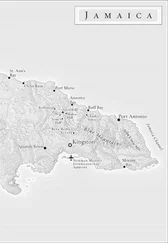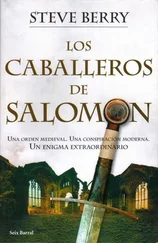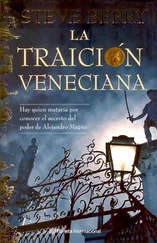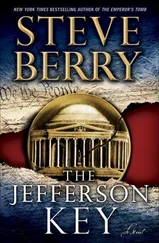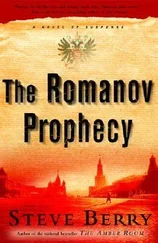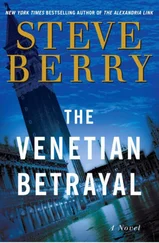Steve Berry - The Charlemagne Pursuit
Здесь есть возможность читать онлайн «Steve Berry - The Charlemagne Pursuit» весь текст электронной книги совершенно бесплатно (целиком полную версию без сокращений). В некоторых случаях можно слушать аудио, скачать через торрент в формате fb2 и присутствует краткое содержание. Жанр: Триллер, на английском языке. Описание произведения, (предисловие) а так же отзывы посетителей доступны на портале библиотеки ЛибКат.
- Название:The Charlemagne Pursuit
- Автор:
- Жанр:
- Год:неизвестен
- ISBN:нет данных
- Рейтинг книги:3 / 5. Голосов: 1
-
Избранное:Добавить в избранное
- Отзывы:
-
Ваша оценка:
- 60
- 1
- 2
- 3
- 4
- 5
The Charlemagne Pursuit: краткое содержание, описание и аннотация
Предлагаем к чтению аннотацию, описание, краткое содержание или предисловие (зависит от того, что написал сам автор книги «The Charlemagne Pursuit»). Если вы не нашли необходимую информацию о книге — напишите в комментариях, мы постараемся отыскать её.
The Charlemagne Pursuit — читать онлайн бесплатно полную книгу (весь текст) целиком
Ниже представлен текст книги, разбитый по страницам. Система сохранения места последней прочитанной страницы, позволяет с удобством читать онлайн бесплатно книгу «The Charlemagne Pursuit», без необходимости каждый раз заново искать на чём Вы остановились. Поставьте закладку, и сможете в любой момент перейти на страницу, на которой закончили чтение.
Интервал:
Закладка:
"Come on," he said.
He knew they needed to leave, and quickly. Thank goodness he still carried the keys to his rental. They rushed to the vehicle and leaped in.
He fired up the engine and whipped from the parking spot. He slammed the transmission into gear and roared from the hotel, tires spinning on the frozen asphalt. He powered his window down, turned onto the boulevard, and spotted a man in his rearview mirror emerging from the hotel.
He gripped the gun from his jacket, slowed as he approached the parked car, and fired a shot into the rear tire, which sent three forms inside ducking for cover.
Then he sped away.
TWENTY-TWO
12:40 AM
MALONE TWISTED HIS WAY OUT OF GARMISCH, USING TO MAXIMUM advantage its maze of unlit narrow streets and his head start on the men who'd been waiting at the Posthotel. He had no way of knowing if they had a second vehicle handy. Satisfied that they were not being pursued, he found the highway leading north that he'd traveled earlier and, following Christl's instructions, realized where they were headed.
"Those things you need to show me are in Ettal Monastery?" he asked.
She nodded. "No sense waiting until morning."
He agreed.
"I'm sure when you spoke with Dorothea there, you were told only what she wanted you to know."
"And you're different?"
She stared at him. "Totally."
He wasn't so sure. "Those men at the hotel. Yours? Or hers?"
"You wouldn't believe me no matter what I said."
He downshifted as the highway began to descend back toward the abbey. "A piece of unsolicited advice? You really need to explain yourself. My patience is about gone."
She hesitated, and he waited.
"Fifty thousand years ago a civilization arose on this planet, one that managed to progress faster than the rest of humankind. Leading the way, if you will. Was it technologically developed? Not really, but it was highly advanced. Mathematics, architecture, chemistry, biology, geology, meteorology, astronomy. That's where it excelled."
He was listening.
"Our concept of ancient history has been strongly influenced by the Bible. But its texts dealing with antiquity were written from an insular point of view. They distorted ancient cultures and completely neglected some important ones, like the Minoans. This particular culture I'm talking about is not biblical. They were an oceangoing society with worldwide commerce, possessing capable boats and advanced navigational skills. Later cultures like the Polynesians, the Phoenicians, the Vikings, and finally the Europeans would all develop these skills, but Civilization One mastered them first."
He'd read about those theories. Most scientists now rejected the idea of a linear societal development from the Old Stone Age through the New Stone Age, Bronze Age, and Iron Age. Instead, scholars believed that humans developed independent of one another. Proof of that existed even today, on every continent, where primitive cultures still coexisted with advanced societies. "So you're saying that, in times past, while Paleolithic peoples occupied Europe, more advanced cultures could have existed elsewhere." He recalled what Dorothea Lindauer told him. "Aryans again?"
"Hardly. They're a myth. But that myth may have a basis in reality. Take Crete and Troy. They were long considered fictional, but we now know them to be real."
"So what happened to this first civilization?"
"Unfortunately, every culture contains the seeds of its own destruction. Progress and decay coexist. History has shown that all societies eventually develop the means of their downfall. Look at Babylon, Greece, Rome, the Mongols, Huns, Turks, and too many monarchical societies to even count. They always do it to themselves. Civilization One was no exception."
What she said made sense. Man truly did seem to destroy as much as he created.
"Grandfather and Father both were obsessed with this lost civilization. I must confess, I'm drawn to it, too."
"My bookshop is loaded with New Age materials about Atlantis and a dozen other so-called lost civilizations, not a trace of which has ever been found. It's fantasy."
"War and conquest have taken their toll on human history. It's a cyclical process. Progress, war, devastation, then reawakening. There's a sociological truism. The more advanced the culture, the more easily it will be destroyed, and the less evidence of it will remain. In more simplistic terms, we find what we look for."
He slowed the car. "No, we don't. Most times we stumble onto things."
She shook her head. "The greatest human revelations have all started with a simple theory. Look at evolution. It was only after Darwin formulated his concepts that we started noticing things that fortified the theory. Copernicus proposed a radical new way to view the solar system, and when we finally looked we found out he was right. Before the last fifty years no one seriously believed that an advanced civilization could have preceded us. It was regarded as nonsense. So the evidence has simply been neglected."
"What evidence?"
She removed Einhard's book from her pocket. "This."
March 800. Charlemagne rides north from Aachen. He's never before ventured to the Gallic Sea at this time of year, when frigid northern winds pound the shore and fishing is poor. But he insists on this journey. Three soldiers and I accompany him, and the journey takes the better part of a day. Once there, camp is set in the usual location, beyond the dunes, which offers little protection from a strong gale. Three days after arriving sails are seen and we think the boats Danes or part of the Saracenic fleet that threatens the empire north and south. But eventually the king shouts in joy and waits on the beach as the ships raise their oars and smaller boats row ashore carrying the Watchers. Uriel, who rules over Tartarus, leads them. With him are Arakiba, who is over the spirits of men, and Raguel who takes vengeance on the world of luminaries, and Danel, who is set over the best part of mankind and chaos, and Saraqael, who is set over spirits. They wear thick mantles, fur trousers, and fur boots. Their fair hair is neatly trimmed and combed. Charlemagne clasps each in a firm embrace. The king asks many questions and Uriel answers. The king is allowed onto the ships, each fashioned of sturdy timbers and caulked with tar, and he marvels at their sturdiness. We are told they are built away from their land, where trees grow in abundance. They love the sea and understand its ways far better than we do. Danel displays for the king maps of places we do not know exist and we are told how their ships find their way. Danel shows us a piece of sharp iron, resting on a sliver of wood, floating in a shell of water, that points the way over the sea. The king wants to know how that could be and Danel explains that the metal is attracted to one particular direction and he motioned north. No matter how the shell is turned the iron point always finds that direction. They visit for three days and Uriel and the king talk at length. I strike a friendship with Arakiba, who acts as counselor for Uriel, as I do for the king. Arakiba tells me of his land, where fire and ice live together, and I tell him that I would like to see that place.
"The Watchers are what Einhard called the people from Civilization One," she said. "Holy Ones is another term he uses. Both he and Charlemagne thought them from heaven."
"Who says they were anything other than a culture we already know exists?"
"Do you know of any society that used an alphabet or language like the one you saw in Dorothea's book?"
"That isn't conclusive proof."
"Was there an oceangoing society in the ninth century? Only the Vikings. But these weren't Vikings."
Читать дальшеИнтервал:
Закладка:
Похожие книги на «The Charlemagne Pursuit»
Представляем Вашему вниманию похожие книги на «The Charlemagne Pursuit» списком для выбора. Мы отобрали схожую по названию и смыслу литературу в надежде предоставить читателям больше вариантов отыскать новые, интересные, ещё непрочитанные произведения.
Обсуждение, отзывы о книге «The Charlemagne Pursuit» и просто собственные мнения читателей. Оставьте ваши комментарии, напишите, что Вы думаете о произведении, его смысле или главных героях. Укажите что конкретно понравилось, а что нет, и почему Вы так считаете.


